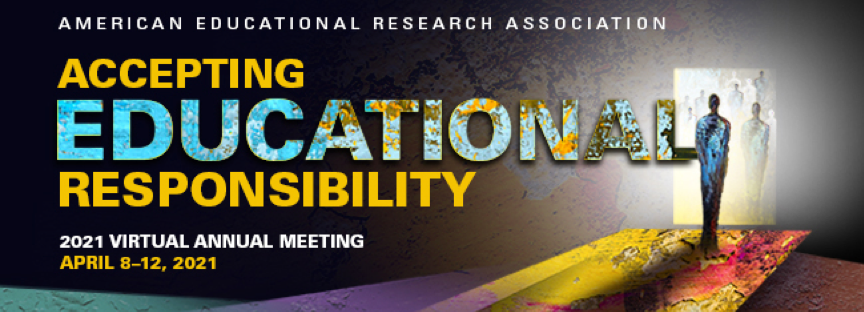Angelos Palikidis, Assistant Professor of History Didactics
Democritus University of Thrace (Greece)
Speech in Session: Teaching History in the Age of COVID and Mass Social Movements: A Global Perspective (Friday, April 9, 2021)
Dear colleagues, my remarks are correlated with three scale areas of the current situation: the global, the European, and the national.
1.
Nowadays the competence of History teachers to adjust into the contemporary context and to establish a productive conversation between present and past is tested; which means, to make students deeply understand that History could help them to reflect on their own cultures, identities, societal issues and also on the current circumstances and adversities.
Contemporary pandemic is an excellent starting point to put under examination issues, which are strongly associated with the multiple aspects of modern academic research in Historiography and Social Science. Micro- and macro- History, Oral History, Local History, World History, History of Health, History of Mentalities, History of Religion, Historical Consciousness Studies and Public History are some of the fields that could contribute fruitfully to answering questions like:
What kind of pandemics appeared in the past?
What impact did they have to the demography, the economy, the transportation, to people’s ideas about life and death, to their religious beliefs, to educational systems, to politics, labor, and to the social movements?
What kind of theories were adopted to explain the outbreak of the pandemics and how did these theories affected people’s lives? Considering that some of these theories appear even today (known as “conspiracy theories”), what remained the same and what changed comparing to the past?
Such teaching approaches would definitely help us to focus on and realize the common places and the differences in the ways people face pandemics in space and time, and thus to reconstruct the shallow perspective of presentism –the most serious “disease” of historical thinking.
How do history teachers cope with these issues in their classes is a matter of question and an interesting topic for further discussion.
2.
Let’s broaden our scope and move on to the Council of Europe policy on history education. Council of Europe consists of 47 member states and it is the most important European Institution on promoting and defending human rights and democratic values. Established after the WW2, made remarkable work on history education aiming to change the long tradition of the nationalist didactic paradigm, which cultivated hatred and discrimination and led the world to the most atrocious war it has ever experienced. Several projects aiming to help history teachers in post conflict or divided societies, like former Yugoslavia and Cyprus, were conducted. During the last 20 years the History Education Division was degraded year after year and faced underfunding. The last intergovernmental project with the title Educating for Diversity and Democracy: teaching history in contemporary Europe” (2016-2019), although it started regularly, stopped suddenly after the withdrawal of Russia and Turkey. The two member states stopped paying their share, after denunciations against them referring to violations of human rights. Today the History Education Division, as far as I know, doesn’t really exist. The latest initiative, held in 2020, is a so called Observatory on History Teaching in Europe. The Observatory consists of a Commission with academic experts assigned by the governments themselves (…)
3.
This year Greece and Greeks all over the world (the so called Hellenism) celebrate the anniversary of 200 years since the Greek Revolution.
Hundreds of events have already taken place and much more are waiting in line. Due to the lack of time I will limit myself to the interplay of the Greek War of Independence with the western world. So far, Philhellenism was conceived by the national historiography as an international solidarity movement to the descendants of the glorious ancient creators of classical civilization, who revolted against the Ottoman tyranny. In other words, according to the national narrative, Philhellenism was an undisputable evidence of the global respect to the heroic fight of the Greeks, a major expression of sympathy and, therefore, a source of national pride. The line of Persey Shelley “we are all Greeks” became the slogan mentioned in almost every anniversary speech.
In contrary, modern historiography interpret Philhellenism as a transnational and multilayered movement, mainly coming from below and strongly associated with many other liberal and national movements in the globe during the 19th century. Worth to say that for the first six years of the War of Independence the European power states were hostile to the Greeks; in 1827 the allied fleet of Britain, France and Russia won the Ottoman-Egyptian fleet and changed the balance. Despite the rivalry between them, the three Great Powers became the “protectors” of the young state and entitled to interfere in its governance –whatever that means.
The most central celebration event three weeks ago was the military march in Athens on March 25th (Independence Day). For the first time, on the platform, next to the President of the Greek Republic, stood invited representatives of the former Great Powers (Britain represented prince Charles and duchess Camilla, Russia the Prime Minister, and France the minister of Defence –president Macron cancelled last moment due to the pandemic but he addressed Greek people on television).
If we put the ceremonial event into a broader political context and also take into account the international situation in southeastern Europe and East Mediterranean, in my opinion, nothing is happening by change. It is definitely associated with the revising policy of the Turkish regime and the restoration vision of the Ottoman Empire. The ceremony picture sends a clear message to the opponent: the western Christian powers, as they did in the past, so will stand by the Greeks now. Not by change, the foreigner guests recited philhellenic poems in their speeches.
History seems to be back!

